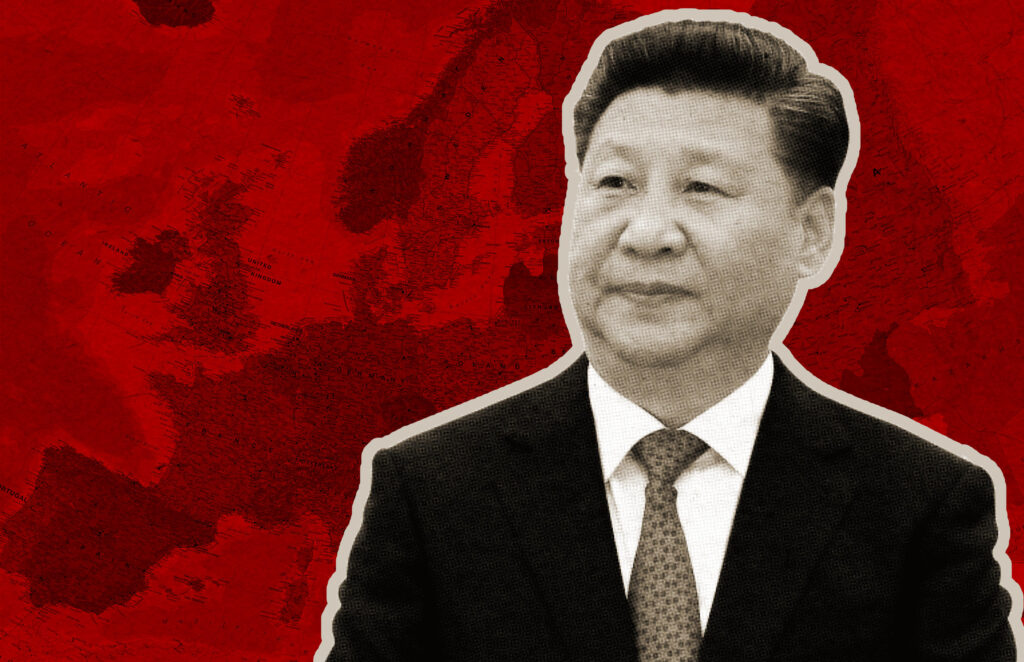The Myth of Economic Prosperity Under Authoritarianism

A common misconception about authoritarianism is that it could help deliver economic prosperity. This perspective suggests that strong, centralized leadership could spur rapid economic growth and development. However, a closer examination reveals that the purported correlation between authoritarianism and economic success is more myth than reality.
The Illusion of Stability
Authoritarian regimes are often associated with a semblance of political stability, which some argue creates a conducive environment for economic growth. However, this stability is frequently maintained through suppression of dissent, censorship, and the absence of political pluralism. While such measures may initially create an appearance of calm, they also stifle innovation, creativity, and diversity of thought – all crucial elements for sustained economic development.
In many authoritarian states, the stability touted as an economic advantage is merely a veneer, concealing deep-seated social and political tensions. The lack of a robust system for peaceful expression and resolution of grievances can lead to explosive situations that undermine any perceived economic gains.
During the 2020 Covid pandemic, China not only faced economic paralysis but also implemented counterproductive internal policies that exacerbated their situation. Workers were confined with welded doors inside 50,000-seat stadiums for weeks without access to food or showers, resulting in a significantly higher death toll compared to Western countries. Numerous prevention measures proved counterproductive, such as testing fish for Covid and quarantining thousands of people in communal spaces instead of allowing home isolation. These failures are attributed to an incompetent government. While it’s acknowledged that democracies also contend with incompetent politicians, the crucial distinction lies in their ability to change leadership in response to worsening situations.
Short-Term Growth vs. Long-Term Sustainability
Authoritarian leaders often prioritize short-term economic growth to bolster their image and maintain control. Mega-projects and infrastructure development are frequently employed as showcases of progress. However, the emphasis on immediate gains can lead to a neglect of long-term sustainability and equitable distribution of resources.
China’s rapid economic rise is often cited as an example of authoritarian success. While the country has achieved remarkable growth, it has also grappled with issues such as environmental degradation, income inequality, and human rights abuses. The heavy-handed approach to economic development has created a host of long-term challenges that could jeopardize the sustainability of China’s economic success.
Another problem with authoritarian countries is their tendency to be aggressive towards their neighboring nations, hindering international trade, a core source of their wealth. Russia invaded Ukraine, and China explicitly threatens Taiwan with a military invasion. This often leads to economic sanctions or embargoes, which can have dramatic and lasting detrimental effects for several decades.
The Absence of Innovation
A critical factor in long-term economic prosperity is innovation, driven by a culture that encourages free thinking, risk-taking, and entrepreneurship. Authoritarian regimes, by their very nature, tend to suppress dissent and control information flow, stifling the innovative spirit. Creativity often flourishes in environments that allow for the free exchange of ideas, something that is inherently at odds with autocratic rule.
Democracies, with their emphasis on individual freedoms, have historically been hubs of innovation. The open dialogue and diversity of thought foster an environment where new ideas can flourish. Silicon Valley, a global innovation epicenter, owes much of its success to the democratic values that underpin the American system.
On the other hand, authoritarian regimes, such as China and Russia, have a long history of stealing intellectual property to compensate because their planned economies can’t support the complexity of advanced technologies like semiconductors. These technologies require a deep ecosystem of companies working freely and under natural market pressures to grow. Heavily planned economies hinder their development. Additionally, limited individual freedoms push scientists, engineers, and entrepreneurs towards more welcoming Western countries, which handicaps authoritarian countries even more.
Corruption and Crony Capitalism
Authoritarian regimes are much susceptible to corruption and crony capitalism than democracies, as power is concentrated in the hands of a few. Economic policies often favor a select group of individuals or entities close to the ruling elite, leading to a distorted and unfair distribution of wealth. This not only hampers overall economic development but also creates a breeding ground for social unrest and instability.
Corruption undermines a country’s ability to elevate the best people and ideas to the top. It enables incompetent management within political and business circles. A ship, manned by an incompetent captain and crew, with no means for competent individuals to rise to the top, has lower chances of returning sound and safe from its journey.
Conclusion
While the myth of economic prosperity under authoritarianism may persist, a more nuanced analysis reveals a troubling reality. The illusion of stability, short-term gains, stifled innovation, and rampant corruption are all inherent pitfalls of autocratic rule. Democracies, despite their imperfections, provide a more conducive environment for sustainable and inclusive economic development. As the world grapples with the balance between political systems and economic progress, it is essential to dispel the myth that authoritarianism is a panacea for prosperity.
In the end, authoritarian countries may flourish economically in spite of their authoritarianism, not thanks to their authoritarianism.